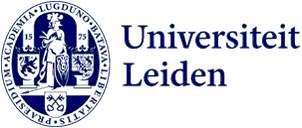
Student research projects on societal issues in Leiden
How safe do people feel in the parks in Leiden? Why are kids playing less outdoors? And why are people not insolating their homes? Students looked into these societal dilemmas and presented their results during an info market in Huis van de Buurt Het Gebouw in Leiden.
These student research projects are part of 'Leren met de Stad' (Learning with the City), a larger project in which students from various educational institutions work on social issues as part of their studies. Students gain a better understanding of the interaction between theory and practice by leaving the classrooms behind and heading into the neighbourhoods.
Feeling safe in Leiden
Local residents, students, and lecturers all visited the info market. The booths where students explained what they have been working on last term were quite busy. A lot of people were interested in the outcome of the students’ research. Caitlin and Lisanne had a lot of interested visitors come to their table. Both students investigated the ‘sense of safety’ in Leiden. Caitlin, a student Forensic Criminology at Leiden Law School, focused on the perceived safety in parks, while Lisanne, a student at the University of Applied Sciences Leiden, focussed on how safe the LGBTQ+ community feels in Leiden’s nightlife.
People would like to have a phone number of a neighbourhood police officer on visible display
Both projects showed that people in Leiden feel relatively safe. However, the results also indicated that people would like to have a phone number of a neighbourhood police officer on visible display: ‘So you can quickly and easily report a suspicious situation. We suggest putting up a sign with a QR code, which will take you to the phone number.’
A plethora of complicated information
The two students presented their ideas to the Municipality of Leiden. By collaborating with the municipality and civic organisations, the students hope that the results of their research will actually be put into practice. So does Thom, who investigated why few people in Leiden insulate their homes with two other Economic and Consumer Psychology students. ‘We talked to energy consultants and neighbourhood ambassadors, and looked at the existing literature. We also went door-to-door with questionnaires and e-mailed residents of Leiden.’
The results showed that there is a plethora of information about insolation and the information is often too complicated to understand. It is also not clear to many Leiden residents how insolation can help them improve the climate. The students came up with a number of recommendations that could hopefully convince more people to insulate their homes. Thom: ‘We propose to make information about sustainability easier to understand and make it more accessible, both online and offline. It is important to emphasise what people can do on their own and together with their neighbours to become more sustainable.
'Many parents believe that it’s not always safe to play outside.’
Less playing outside
Across from Thom was Assistant Professor Coen Witz. Unfortunately, his students at the Honours College could not attend the info market. Which is why he was there himself to explain why children are playing less outside. ‘We assume that children play less outside because they are gaming or on their phone at home. However, that doesn’t seem to be the biggest issue. We found out that a lot of children have plenty of time to play outside, but it’s their parents who don’t have enough time to accompany them. Moreover, many parents believe that it’s not always safe to play outside.’
To get children to play outside more, the students recommend incorporating more technology into outdoor playing. It is also important to educate parents about the benefits of playing outside. A policy advisor on playing outside will review the research.
Going for a walk or sjoelen
Marieke, a student of Cultural Anthropology and Development Sociology, occasionally played games for her research. She examined social cohesion in public spaces, in this case in the neighbourhood De Kooi in North Leiden. She looked at the role community centres play in all this. ‘For my research, I joined a lot of activities such as sjoelen (table shuffleboard), going for a walk, or cleaning up the neighbourhood. During those activities, I talked to local residents about their opinion on the neighbourhood and whether they feel at home here. I’m now writing my thesis and drafting a policy document about my research for Incluzio (an organization that supports residents in local neighbourhoods and areas, red.).’ If you want to know more about Marieke’s research, click here.
The students have finished their research projects, but that does not mean that the projects that they have been working on are finished too. The next group of students taking part in ‘Leren met de Stad’ will do even more research into these social issues.
Text and image: Dagmar Aarts
Banner image: Caitlin en Lisanne ask visitors to fill in a questionnaire by using a QR code.
